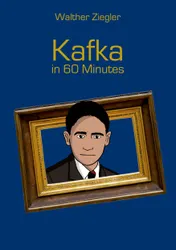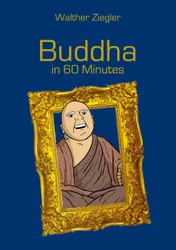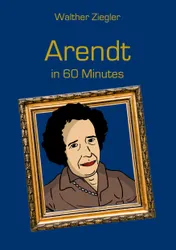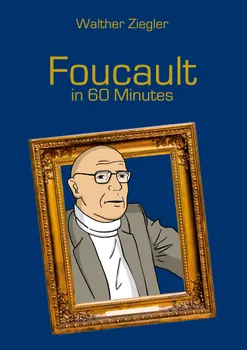Foucault counts as one of the great Post-Structuralists. Already his book-titles -"History of Madness", "Discipline and Punish", "The Use of Pleasure", "The Order of Things" - show his entirely new way of looking at things. He is also one of those philosophers who have become more, not less, influential after their death. This should both please and worry us. It is pleasing that Foucault's key ideas have remained so vital and relevant but worrying also because the main one among these ideas is so disturbing. "Man is erased, like a face drawn in the sand": With this thesis of "the end of Man", Foucault does not mean that we are about to die out as a species, for example through climate change. He means only that Man as we have hitherto known him, as a free, self-determined being spontaneously enjoying his own pleasures, is vanishing. This "Man" is being dissolved into the discourses and structures of our "carceral society", in indeed just the way that a face drawn in the sand is dissolved by the incoming tide. In the 18th century there was invented a new circular prison which allowed the warder to observe all the prisoners from a single central point. This feeling of being always observed has, Foucault argues, become the model for our whole society. But Foucault shows us, besides the origin of the structures of our coercive society, also a certain model for a modern "art of living". What does this model look like? Is it still possible at all to break out, as a true individual, from this "coercive society"? Is Foucault right to universalize his "prison paradigm" and say that we all feel constantly observed? Of the disturbing present relevance of his thoughts, in any case, there can be no doubt. The most important of these thoughts are explained here using over 100 key quotes. The book appears as part of the popular series "Great Thinkers in 60 Minutes".

Nietzsche in 60 Minutes : Great Thinkers in 60 Minutes
Walther Ziegler
book
Great Thinkers in 60 Minutes - Volume 5
Walther Ziegler
book
Great Thinkers in 60 Minutes - Volume 3 : Confucius, Buddha, Epicurus, Descartes, Hobbes
Walther Ziegler
book
Great Thinkers in 60 Minutes - Volume 4 : Schopenhauer, Nietzsche, Wittgenstein, Kafka, Arendt
Walther Ziegler
book
Epicurus in 60 Minutes : Great Thinkers in 60 Minutes
Walther Ziegler
book
Descartes in 60 Minutes : Great Thinkers in 60 Minutes
Walther Ziegler
book
Kafka in 60 Minutes : Great Thinkers in 60 Minutes
Walther Ziegler
book
Buddha in 60 Minutes : Great Thinkers in 60 Minutes
Walther Ziegler
book
Confucius in 60 Minutes : Great Thinkers in 60 Minutes
Walther Ziegler
book
Schopenhauer in 60 Minutes : Great Thinkers in 60 Minutes
Walther Ziegler
book
Arendt in 60 Minutes : Great Thinkers in 60 Minutes
Walther Ziegler
book

We're Doomed. Now What? : Essays on War and Climate Change
Roy Scranton
audiobook
A Place of Our Own: Six Spaces That Shaped Queer Women's Culture
June Thomas
audiobook
Loot
Barnaby Phillips
audiobook
The Case of Wagner, Nietzsche Contra Wagner, and Selected Aphorisms
Friedrich Nietzsche
book
Off with Her Head : Three Thousand Years of Demonizing Women in Power
Eleanor Herman
audiobook
Born in Blackness : Africa, Africans, and the Making of the Modern World, 1471 to the Second World War
Howard W. French
audiobook
The Male Gazed
Manuel Betancourt
audiobook
Sisters in Captivity : Sister Betty Jeffrey OAM and the courageous story of Australian Army nurses in Sumatra, 1942–1945
Colin Burgess
audiobookbook
100 Quotes by Laozi
Lao Zi
audiobook
This Arab Is Queer : An Anthology by LGBTQ+ Arab Writers
book
Witchcraft : A History in Thirteen Trials
Marion Gibson
audiobookbook
Hitler's Furies : German Women in the Nazi Killing Fields
Wendy Lower
audiobook
